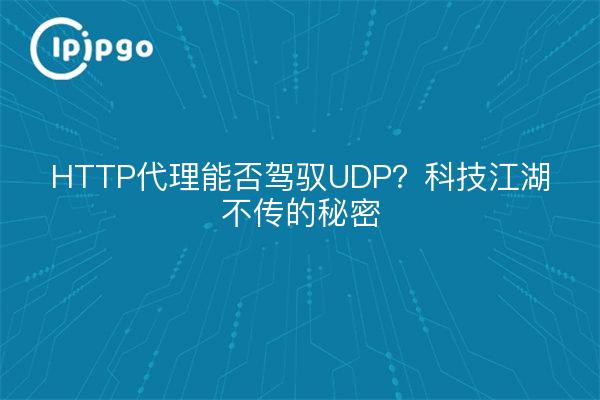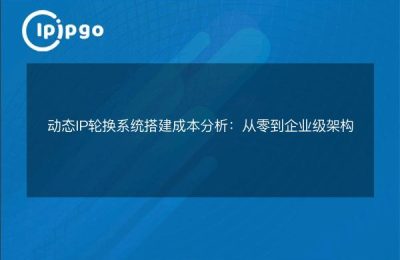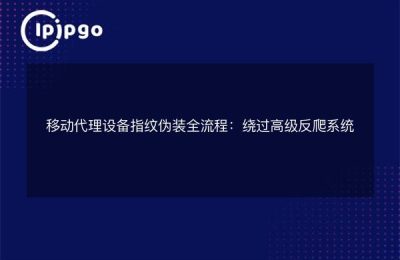
In the jianghu of the Internet, HTTP and UDP are like two chivalrous characters with very different personalities, one following the rules and regulations, and the other advocating freedom. Recently, a friend asked me, HTTP proxy for UDP can actually be summoned? This question is like asking an inexperienced swordsman can manipulate the knife to cook chicken. Today, I ride the wind, for you to solve this technical mystery.
HTTP and UDP's status in the jianghu: the chivalrous path of a man of letters and a man of arms
HTTP, or Hypertext Transfer Protocol, is often used for web browsing. Its elegance and calmness, like a perfect gentleman with a long sword, always "walks" peacefully when transferring data. Of course, walking in the world is about rules, HTTP is good at controlling, retrying and transmission error checking, which is safe and reliable.
UDP (User Datagram Protocol), it is the light cavalry in network transmission, do not care whether it can be transmitted to ten, focusing on efficient and real-time. It does not care about the horse in the transmission task, the speed of nature is amazingly fast, action like the wind, so by real-time tasks such as video playback and other applications favored.
HTTP Agent: The Old Bull of Dedicated Service
HTTP proxy, as the name suggests, usually only proxy HTTP protocol, it is the guardian of network resources, for you to get resources, upload requests, to put it more esoterically, like a burden of hard labor, as long as you need, it is obliged to help you get ready.
The beauty of this kind of forwarding is that the user doesn't have to talk to the target server directly, but rather through an HTTP proxy to ensure privacy. It may seem like a small detour, but if it's all under control, isn't it a smart way to "take the middle road and make a shortcut"?
Can UDP step into the HTTP proxy arena? A closer look at what's at stake
Then the question arises: UDP this kind of untamed, do not look back at the data flow, can obediently take the road of the HTTP proxy? The answer may be somewhat disappointing, because in the traditional sense, HTTP proxy is really "more than enough".
HTTP proxy is designed to handle HTTP requests that require a response and confirmation of such and such a porcelain work, and UDP is not precisely to confirm the answer to the idea. It's like taking plastic chopsticks to pick up an iron ball, it's just too much and not enough. However, there is always a solution to the problem of technology jianghu artifacts: a kind of help called SOCKS proxy appeared, able to handle UDP, which is a break with the norm.
SOCKS Agents: the all-rounder with sleekness and finesse
The SOCKS proxy, unlike the HTTP proxy, is a universal proxy service that can handle data transfers over different protocols, including UDP. so if you need UDP traffic to pass through a proxy, SOCKS is the means to that pie bar.
SOCKS is a sleek, multi-skilled, clever dartboard that can escort TCP transports as well as lead UDP excursions, realizing the vision of killing two birds with one stone. Of course, choosing such a proxy also means that you need to carefully weigh the relationship between speed and security.
The bridge between HTTP proxies and UDP: the care behind the moths
If you have to use HTTP proxies for UDP transfers, a viable option is to use some tools or techniques, such as port forwarding on some specific servers, in order to convert UDP to HTTP traffic. It's like camping on a mountain road with no end in sight; you can do it, but it requires more resourcefulness and patience.
It is important to note that the invisibility of this operation is noteworthy because it requires anticipation of all "uncertainties". In other words, it is prudent to go above and beyond the norm, assessing the impact of each step and avoiding the dreaded cyber avalanche.
Conclusion: There is a way out of the jungle, and the way out is always expanding!
In this lake of the Internet, the relationship between HTTP proxy and UDP protocol is just like different schools of martial arts, each has its own limitations and breakthroughs. Although HTTP proxy does not directly support UDP, but through reasonable skills and multi-protocol proxy, you can realize some unexpected functions. In other words, challenge is always a catalyst for passion and innovation.
In the course of continuous exploration and experimentation, those technical barriers may only be temporary. When we go deeper into this business, we will find more interesting possibilities, until it becomes the "sharp sword" in our hands. May we all find our own world in this technical world.








